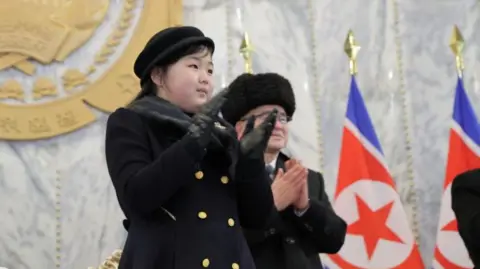After the passing of Pope Francis, the Vatican is set to hold a modest funeral on Saturday, April 22, 2025, deviating from earlier elaborate traditions. The pontiff, who died at 88 from a stroke, emphasized simplicity in life and death, opting for a singular coffin instead of multiple nested ones when it came to his burial. Cardinals worldwide are gathering to pay their respects and prepare for the conclave that will choose the next pope, expected to begin once the funeral rites conclude.
As tributes flood in, political figures across the globe have announced their plans to attend. President Trump is expected to be among them, alongside leaders from around the world who witnessed the pontiff’s efforts to bridge divides and advocate for marginalized communities.
Pope Francis was well-loved in many countries, evident in memorials throughout South America, Europe, and Asia. In Caracas, Venezuela, parishioners congregated to honor a pastor who embraced all, while in Manila, ceremonies were held reflecting upon the importance of compassion and humility—values Francis passionately upheld. The outpouring of emotion reflects his far-reaching impact; many view his legacy as one that emphasized inclusivity, charity, and the need for the church to reconnect with humanistic values.
The Vatican has confirmed that the funeral service will comply with new, streamlined rules, beginning at St. Peter’s Basilica. Following his death, the pope’s remains will first be displayed to the public for viewing, a tradition oftentimes reserved for popes to allow the faithful to offer their farewells.
Simultaneously, discussions surrounding the selection of Francis' successor have intensified. The process will see 135 cardinals under 80 vote to determine the future leader of the 1.3 billion-strong Roman Catholic Church. While some observers speculate a desire for a continuation of Francis' progressive agenda, others anticipate a return to conservative approaches within the church hierarchy.
Pope Francis left behind a resolute vision for a church that emphasizes mercy, outreach, and social justice—values that supporters hope will continue under his successor. As the world mourns this unique figure and leader, all eyes will be on the Vatican in the coming days as the future of the Catholic Church hangs in the balance.
As tributes flood in, political figures across the globe have announced their plans to attend. President Trump is expected to be among them, alongside leaders from around the world who witnessed the pontiff’s efforts to bridge divides and advocate for marginalized communities.
Pope Francis was well-loved in many countries, evident in memorials throughout South America, Europe, and Asia. In Caracas, Venezuela, parishioners congregated to honor a pastor who embraced all, while in Manila, ceremonies were held reflecting upon the importance of compassion and humility—values Francis passionately upheld. The outpouring of emotion reflects his far-reaching impact; many view his legacy as one that emphasized inclusivity, charity, and the need for the church to reconnect with humanistic values.
The Vatican has confirmed that the funeral service will comply with new, streamlined rules, beginning at St. Peter’s Basilica. Following his death, the pope’s remains will first be displayed to the public for viewing, a tradition oftentimes reserved for popes to allow the faithful to offer their farewells.
Simultaneously, discussions surrounding the selection of Francis' successor have intensified. The process will see 135 cardinals under 80 vote to determine the future leader of the 1.3 billion-strong Roman Catholic Church. While some observers speculate a desire for a continuation of Francis' progressive agenda, others anticipate a return to conservative approaches within the church hierarchy.
Pope Francis left behind a resolute vision for a church that emphasizes mercy, outreach, and social justice—values that supporters hope will continue under his successor. As the world mourns this unique figure and leader, all eyes will be on the Vatican in the coming days as the future of the Catholic Church hangs in the balance.























